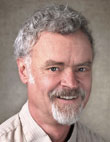Today
10:30 a.m.
Chemistry Department
Analysis of Colloids by ICPMS in a Single Particle Mode: Results on Al2O3, Gold, and UO2 Colloids
Claude Degueldre, Paul Scherrer Institute, Switzerland
775A Tan Hall (campus)
11 a.m.
Nuclear Science
Creating a Star in the Laboratory: The National Ignition Facility
Richard Boyd, Livermore Lab
Bldg. 50 Auditorium
Noon
CITRIS
Web 2015: Design and Collaboration for Social Change Paul Braund, RIOS Institute
290 Hearst Mining Bldg. (campus)
Noon
Environmental Energy Technologies
Daylighting the New York Times Headquarters: Moving Daylighting from Niche to Mainstream Markets
Eleanor Lee
Bldg. 90-3122
Noon
Dance Club
Intermediate Foxtrot Lesson
Bldg. 51 Lobby
12:15 p.m.
Yoga Club
Class with Chris Hoskins
Bldg. 70-191
4 p.m.
CITRIS
Blast Protection of Bridges
Abolhassan Astaneh-Asl, UC Berkeley
502 Davis Hall (campus)
Tomorrow
10 a.m.
EHS27
Performing an Effective Safety Walkaround
Bldg. 70A-3377
3:45 p.m.
Nuclear Engineering
Sustainable Nuclear Energy System Development and the Current Status of the DUPIC Project
Kee-Chan Song, KAIST, Korea
Shephard Room, Etcheverry Hall (campus)
4 p.m.
Physics
Emerging Applications of Atomic Magnetometers: Fundamental Symmetries to NMR
Micah Ledbetter, UC Berkeley
Bldg. 50A-5132
|
|
 |
|
|
 |
|
| |
Breakfast: Chorizo Scramble with Flour Tortilla
Tomorrow's Breakfast: Popeye Omelet served with Fruit Salad
Pizza: Pineapple and Ham
Grill: Chicken Quesadilla with Sour Cream, Salsa and Guacamole
Entree: Chicken Parmigiana with Pasta and Veggies
Deli: Sicilian Combo Prestini
Carvery: Roasted Turkey Breast with Mashed Potatoes
| B'fast: |
6:30
a.m. - 9:30 a.m. |
| Lunch: |
11
a.m. - 1:30 p.m. |
| Full
menu |
| |
|
|
|
 |
|
 |
Changes to Health
Benefits Next Year
There will be several changes to University of California healthcare benefits, starting next year. Health Net and Kaiser will be the exclusive HMO providers. PacifiCare will no longer be offered, however Health Net benefits and primary-care doctors are virtually the same. UC will offer most employees and retirees new wellness benefits through Stay Well. Enhanced and standardized mental and substance abuse benefits will be provided by United Behavioral Health. CIGNA will be a new medical plan option. Rates for Kaiser will increase by 8.4 percent and Blue Cross PPO by 3.3 percent or less. Health Net and Blue Cross participants will have a slight decrease in premiums. Changes can be made to benefit plans during Open Enrollment, Nov. 1-27. The Lab will hold its Open Enrollment fair on Nov. 9 in Perseverance Hall, 1 to 3 p.m. For more information on benefits changes, go
here.

|
 |
|
 |
|
 |

Terahertz Radiation
Controls Properties
|
|
|
|
 |
 |
|
|
Rini |
|
|
|
A collaboration led by researchers with Berkeley Lab has used molecular vibrations, triggered by ultrafast pulses of terahertz radiation, to change a manganite crystal from an electrical insulator into a conductor. The ability to induce dramatic phase changes in solid materials through select vibrations holds great promise for future exploitation of prized technological phenomena such as superconductivity and magnetoresistance. “We have shown how macroscopic properties of a solid material, in this case, electrical resistance, can be controlled on ultrafast timescales through the coherent deformation of the material’s crystal structure,” said Matteo Rini, with the Materials Sciences Division. Full story.

Modified Algae Could
Help Produce Biofuels
|
|
|
|
 |
 |
|
|
Mehlhorn |
|
|
|
Anastasios Melis, a UC Berkeley professor, has created mutant algae that make better use of sunlight than their natural cousins do. This could increase the hydrogen that the algae produce by a factor of three. It would also boost the algae's production of oil for biofuels. "If you can increase the productivity by means of thinning out the (chlorophyll), it's going to affect any product that you make," says Rolf Mehlhorn, an energy technologist at Berkeley Lab. Full story.
Scientists Still Murky
About Dark Energy
Astronomer Adam Riess remembers the moment he realized gravity was pushing galaxies apart. A decade ago, he was part of a team studying how rapidly the universe has been expanding over the past several billion years. "I still recall feeling very excited and also very anxious … because most things you discover in science are wrong, and they have a half-life of about five minutes." But this time, the finding didn't fizzle. Instead, a rival team, led by Berkeley Lab physicist Saul Perlmutter, had arrived at the same conclusion. Full story.
 |
 |
|
|
 |
|
|
|
|
 EMERGENCY INFO EMERGENCY INFO |
 |
Emergency: Call x7911
Cell Phones: Call 911
Non-emergency Incident Reporting: Call x6999
SECON level 3
More Information |
 |
|
|
 |
|
|

